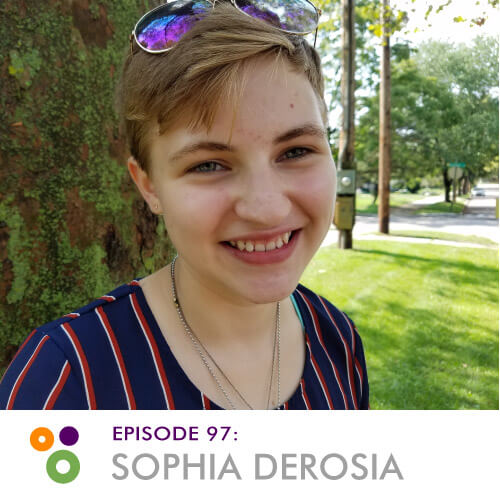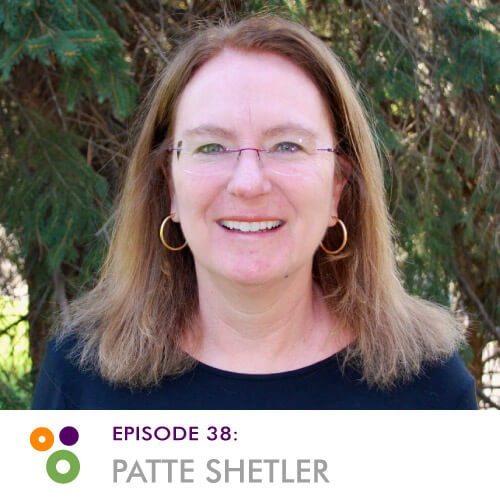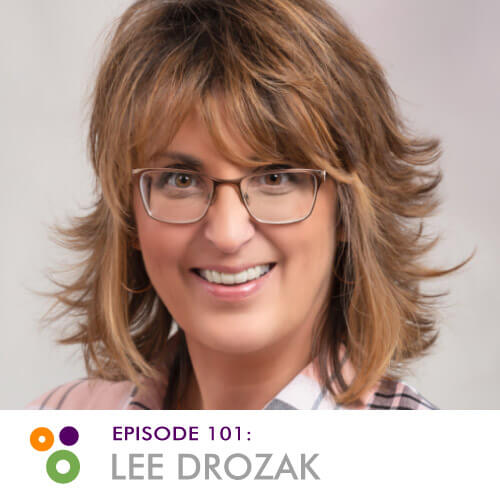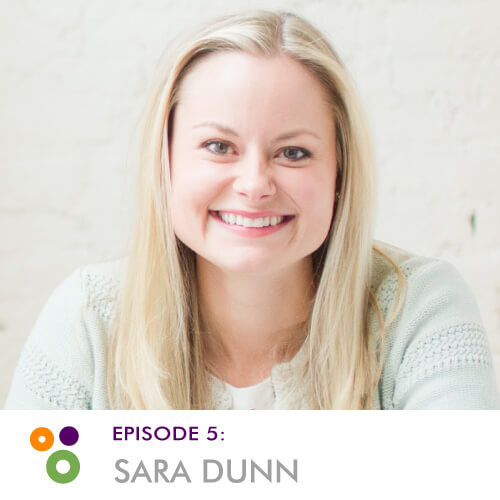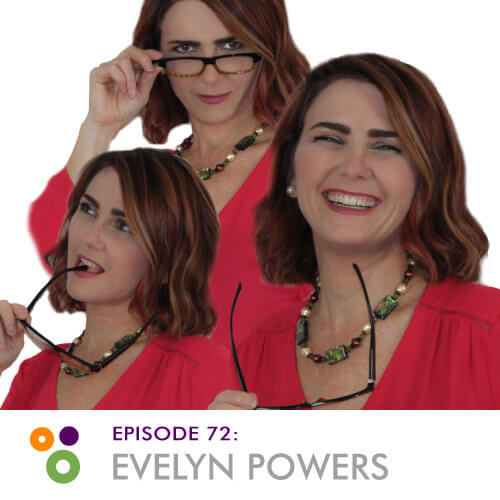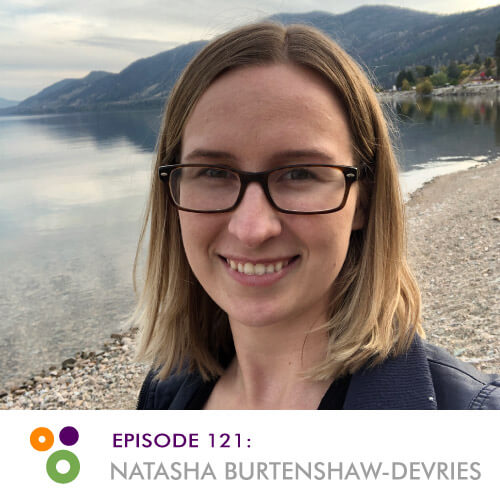Episode 77: Svetlana Kouznetsova

Podcast: Play in new window | Download
Subscribe: RSS
Introducing Svetlana Kouznetsova
Svetlana Kouznetsova is a user experience and accessibility consultant who is deaf and works with businesses to make their products, services, events user-friendly and accessible to more people. She is a book author and an international speaker.
Show Notes
Twitter | @svknyc
Website | About Me
Episode Transcript
Tara: This is Hallway Chats, where we meet people who use WordPress.
Liam: We ask questions, and our guests share their stories, ideas and perspectives.
Tara: And now the conversation begins. This is Episode 77.
Liam: Welcome to Hallway Chats. I’m Liam Dempsey.
Tara: And I’m Tara Claeys. Today we’re joined by Svetlana Kouznetsova. Svetlana is a user experience and accessibility consultant who is deaf and works with businesses to make their products, services, events user-friendly and accessible to more people. She is a book author and an international speaker.
A special note about this week’s podcast: Since Svetlana is deaf, we conducted this interview by typing back and forth with each other. We recorded this audio after the actual interview and asked Janet Oak to join us to read Svetlana’s part of the conversation, for the benefit of our podcast listening audience.
Tara: Welcome Svetlana!
Svetlana: Hello! Thanks for having me.
Liam: Thanks for joining us. Can you tell us more about yourself?
Svetlana: I live in NYC area. Originally I’m from Russia and my first language is Russian
Liam: Cool!
Svetlana: If you wondered why my name looks and sounds foreign, that’s why. I mastered English as a foreign language after moving here to the States.
Tara: Is sign language the same in Russian and in English? Or is that a silly question?!
Svetlana: No. Sign languages are different all over. Even British and American sign languages are totally different. Sign languages are in the same way spoken languages are different. There’s no universal sign language in the same way there’s no universal spoken language.
Svetlana: Currently I’m an user experience and accessibility consultant helping businesses make their products, services environment user-friendly and accessible. I provide consulting services, Training sessions, workshops. Sometimes I give presentations at events and conferences. One example is a TEDx talk I gave this year about captioning access. I also wrote a book on this topic.
Liam: I love it!
Tara: I watched that TedX. It was very interesting. Can you tell how got started with website specific work?
Svetlana: My first degree is in graphic design. My masters degree is in Internet Technology. I did not have any plans, I didn’t know what I wanted to do … many 18 year olds don’t! So I just went with the flow.
Tara: Was that in the US or was that still in Russia?
Svetlana: I went to American universities. And graduated from universities here.
Tara: Ah! Were they specific universities for the deaf, like Gallaudet?
Svetlana: No, I went to a regular university. Where I had sign language interpreters and live captioners. I learned English 7 years before I learned American sign language. I could not understand interpreters so I benefited from captions more. Majority of deaf and hard of hearing people use spoken languages and don’t know sign language. American sign language is my fifth language that I learned, by the way.
Tara: Wow!
Liam: Wow! That is really cool!
Tara: So, tell us about what it was like going to university in the US with a new language and also being deaf?
Svetlana: It was very overwhelming with new language and new culture. But I was even more overwhelmed when I couldn’t understand deaf people or sign language interpreters in beginning. I was not aware about live captions until later and I wished I knew about it sooner to make learning easier. Not all deaf people use interpreters. Deaf people are different and use different communication methods.
Svetlana: I didn’t know any American sign language except for fingerspelling even though I could understand English well.
Tara: I can’t imagine how challenging that must have been. Hmmm. Have you decided to stay in the US now?
Svetlana: I’ve lived in USA for quite a long time since I was young.
Tara: Can you tell us how you got started with WordPress please?
Svetlana: Sure. I started working with WordPress when I was looking for an CMS. That was easy to learn to use and to build websites with. To learn more about WordPress, I read information online an also started attending WordCamps in New York. Originally they were not accessible to me as a deaf person. So I started advising organizers on how to make their events and media accessible.
Liam: How long ago was that?
Svetlana: Around 10 years ago, I think.
Liam: Wow!
Svetlana: I also attend monthly WordPress Meetups in New York sometimes. I gave a presentation at their Meetup in 2012 on how to make websites accessible. Then gave a presentation at a WordCamp NYC in 2014 on accessibility beyond coding, and then gave a presentation at a WordCamp US in 2016 on accessibility for deaf and hard of hearing of people. I introduced organizers to live captions during my presentation in 2014. And recommended captioning vendors for WordCamp NYC and WordCamp US. That’s how more WordCamps became accessible.
Tara: I have noticed that. I noticed that at WCNYC which may have been that first year you did that.
Liam: I have noticed that too.
Svetlana: I have worked with communication access providers for over 20 years and with event organizers for over 10 years. Now captioning services for media and events are part of my overall event accessibility consulting services that cover accessibility not only for events but also for event websites and post-event recordings. I also advise event organizers about code of professional conduct for interpreters, captioners, and other communication access providers in order for them to abide by so that deaf and hard of hearing attendees feel comfortable attending events. There are some interpreters and captioners who do not follow code of ethics which makes deaf people feel uncomfortable. And many are not aware of the code of ethics, so it’s important for event organizers to be aware of it and to ensure that communication access providers follow it.
Tara: Can you please tell us about those ethics and code of conduct for interpreters and captioners?
Svetlana: It’s a bit long for this conversation, but I can give a link to the page about this.
Liam: A link would be great.
Tara: Let’s change gears a bit. We want to talk about success. We ask all of our guests about success. And so we’re going to ask you about it as well. How do you define success, Svetlana?
Svetlana: It’s a hard question to answer to answer.
Tara: It could be a mix of personal and professional definitions. Your call.
Svetlana: In my experience it’s not letting my deafness hold me back. Many people think deafness as a weakness so I’ve had to prove throughout my whole life that I can do anything as a deaf person. For example, I took a risk to be transferred from a school for the deaf where I could understand everyone in sign language, to a regular school where I was the only deaf person and didn’t have any communication access services. I spent 7 years there, missing most things in classes. I was not satisfied with quality of education in a school for the deaf. That was back in Russia. There was no accessibility even on anyone’s mind back then and Russia is very behind USA in accessibility.
Liam: I love your strength. How old were you when you moved from Russia?
Svetlana: I was a teenager. I still can remember Russian and can speak it fluently.
Liam: That’s an amazing choice to have made as a teenager. What support did you have from your parents and friends for undertaking this big challenge?
Svetlana: Yes, my family support was very paramount. Without them I would not be where I am now. I had support from them at home. Also I had support from teachers during their office hours. They did not have any experience working with deaf people, so I was their first deaf student. They tried their best to help me as much as they could. That was long before accessibility became a “trend.” If I didn’t switch to a regular school, I would not have the opportunity to learn English and now speak to you.
Tara: Are your parents both hearing?
Svetlana: Yes, everyone in my family is hearing. I was born hearing and lost all of it from meningitis when I was 2 years old.
Liam: Meningitis, on a side note, is a terribly quick disease. When I was in university several students died from it in only a few days. It is a hard disease.
Tara: Svetlana, do you have siblings?
Svetlana: Yes, I have a younger sister. She’s an adult now but she’s still a baby to me.
Liam: Ha!
Tara: Did she help you growing up?
Svetlana: Yes, she sometimes interprets orally to me during family gatherings. She’s very easy to lip-read and she can finger spell in English and Russian. My family and I didn’t sign when growing up, due to the old notations by medical professionals that sign language was bad for language development. Then it became a habit. But my family does support sign language and captioning and all types of access.
Liam: So did you grow up lip-reading?
Svetlana: Yes, I can lipread but only to an extent. It depends on who I talk to and it’s easier for me to lip-read people I know and one to one . I cannot follow group conversations. So I have someone to summarize to me what’s said.
Liam: How did you communicate when you were young?
Svetlana: I communicated verbally and in writing. When growing up, I learned sign language at a late age. I learned Russian sign language at the age of 7, when I started a school for deaf in Russia. I didn’t use sign much after I switched to a regular school and then I learned American Sign Language at age 18 when I started university. By that time I already knew English.
Tara: Wow! Let’s get back to the idea of success. Do you run your own business? Or do you work for yourself, that is?
Svetlana: Yes I am an independent consultant.
Liam: So, I’m wondering about the relationship between being a business owner, but also seeing success in the evolution in this country and in the web world generally, particularly as it comes to accessibility.
Svetlana: It’s a bit challenging, but it’s getting better with time. It’s great to see more organizations to care about accessibility.
Tara: I would think seeing progress – however small – could be satisfying. And that might also affect your business.
Svetlana: Yes I’m glad to see progress. There are still many misconceptions about accessibility though.
Liam: Do you want to talk about some of those misconceptions?
Svetlana: Sure, like when it comes to accessibility in physical spaces everyone assumes it’s for wheelchair users only, or when it’s web accessibility it’s only accessibility for blind people based on coding only. Those are a few examples of misconceptions. And non-disabled people make assumptions and decisions for disabled people without asking them for advice. That happens quite often.
Liam: Yes, yes it does.
Svetlana: Even if they care about accessibility and think they are doing a favor.
Tara: Do you think that is changing?
Svetlana: Slowly but surely.
Tara: How does WordPress measure up? Both as software and as a community, would you?
Svetlana: You have probably heard about Gutenberg?
Liam: Ha! What’s Gutenberg?
Svetlana: I’m not very familiar with all those issues in detail but I do hear about this.
Liam: It was well documented that the head of the accessibility team for Gutenberg recently resigned as leader as result of the lack of attention to challenges around Gutenberg.
Liam: Let me ask you if you interact with many other tech communities to address accessibility needs of their CMS, maybe like Drupal or Joomla?
Svetlana: Yes, and not just technical communities. Also user experience communities. Accessibility is not just about coding, which is one of misconceptions.
Tara: Yes, I can see that.
Svetlana: Accessibility needs to be everywhere
Tara: Are there many consultants who do what you do?
Svetlana: Yes, there are many accessibility consultants. Accessibility is a very huge field. So it has specializations.
Liam: Specializations like?
Svetlana: For example, special education is also part of accessibility. It’s outside of my scope, for example. My specializations are web accessibility, accessibility for deaf, disability awareness, and such. And accessibility for deaf and hard of hearing people which also includes captioning consulting. There are different types of captioning access so I advise on this topic a lot.
Tara: Do you advise captioners in that case?
Svetlana: No, I advise media producers and event organizers. And I have my subcontractors to provide different types of captioning services when needed.
Liam: What do you do when you are not working or attending conferences? What keeps you busy and interests you outside of work?
Svetlana: So many things. Spending time with my family and friends, watching a good movie with captions, reading a good book, doing yoga, learning languages, traveling, meeting new people.
Liam: I see from the books on the shelf behind you that you read a lot!
Svetlana: Those are old books, ha-ha! I no longer read paper books.. all I read now are e-books.
Liam: I like flipping pages. Let me ask you about languages, you have talked about languages a lot today .What language have you learned most recently?
Svetlana: I have been trying to master Chinese on and off in the past few years.
Tara: Wow!
Svetlana: It’s hard to master languages if I don’t practice them or use them regularly.
Liam: Where would you say you are on learning Chinese? How fluent are you? And are you learning Chinese sign language?
Svetlana: I’m still on very basic level of fluency. I learn more of spoken and written languages.
Svetlana: I also took French for 4 years in middle and high school. And German in university, but due to no practice I don’t know German much except for greetings. And I know basic French.
Liam: To be clear – Russian, English, German, French, Chinese, ASL … what else?
Svetlana: Just a bit of other languages when I travel, very few words.
Tara: Is it easier to learn a language when you don’t speak or hear it?
Svetlana: What do you mean?
Tara: You don’t have to learn to pronounce the words.
Svetlana: I just like learning languages, and I do need to learn how to pronounce words. Otherwise I cannot memorize them.
Liam: So, like auditory memory? But no … I’m confused.
Svetlana: More of phonetic memory. I just learn how to pronounce, but I don’t know what it sounds like.
Tara: So like read and red?
Svetlana: [nods] There are sound transcripts in writing actually. That’s how it helped me learn to pronounce English and French, then I get feedback from hearing people on pronunciation.
Liam: Like the pronunciation guides in dictionaries?
Svetlana: Yes. Dictionaries have them – foreign word then sound transcript then translated words. I don’t know how other deaf people do it. I only speak for myself
Liam: Excellent answer!
Tara: Now, some deaf people speak. Do you speak at all?
Svetlana: Yes, I can speak. I was taught to speak and lip-read when growing up. I can speak here but I don’t know how intelligible my speech is for you.
Liam: I am going to swing towards advice. We ask people about advice on our show. What is the best advice that you have ever received and successfully worked into to your life?
Svetlana: I’ve gotten many different pieces of good advice. I would share one that I’ve gotten from different sources, is to take good care of health, because health is wealth. Without health you cannot be productive
Liam: … Hence the yoga
Svetlana: Yoga does relax me.
Liam: Have you tried goat yoga? Where people do yoga and baby goats climb on them?
Svetlana: [smiling] I have heard of it but have never seen it. I do regular yoga. Similar to hatha type.
Tara: They probably have goat yoga somewhere in New York City because they have everything in NYC!
Svetlana: I’m not sure if goats are roaming in New York though! LOL.
Tara: I wouldn’t be surprised. I’d like to go back …when we started, we asked about success. You said “Not letting being deaf hold you back.” How has “not letting being deaf hold you back” changed for you over time? Especially as accessibility and disabilities are increasingly accepted, understood and respected … Although, of course, with plenty of room for more acceptance and respect. How has that changed over time, if at all?
Svetlana: That definition has not really changed much. I just need to be persistent and not to give up when facing ongoing challenges and barriers. When people with disabilities face barriers, it’s mostly man made. There would be no barriers if society removes them in order to make the world more accessible to everyone.
Liam: We had a panel at WordCamp Philly about autism and getting people with autism into the workplace. A few of the panelists noted that the barriers are not those people with autism, but those without autism who don’t work to understand the different needs.
Svetlana: I agree. Disabilities are as much a part of diversity and inclusion, but sadly people with disabilities are often excluded from that equation because there’s a notion that disability is a pathological view.
Liam: You shared a number of really impressive feats that you have achieved and challenges you have overcome. Can you share with us what would have been your biggest and one of your biggest challenges – how have you or are you overcoming it?
Svetlana: My stubbornness helps me overcome them and support from my family too.
Liam: Maybe persistence over stubbornness?
Svetlana: Being stubborn is not bad in my opinion. It helped me get where I am now, and I’m an Aries by horoscope by the way. Not that I believe in horoscopes.
Liam: That is very impressive. How did you decide to become an accessibility consultant vs. being a graphic designer or something else that would have interested you professionally?
Svetlana: Because there’s a lack of awareness about accessibility. People with disabilities make up the largest yet the most ignored minority. They make up 1.3 billion of people worldwide. That’s the population of china! Plus they control over $4 trillion dollars worldwide. It’s the market that cannot be ignored. People with disabilities are even excluded from the diversity and inclusion equation. I’ve often experienced being excluded from diversity events, even denied sign language interpreters by people who talk about diversity, or videos not captioned on those topics.
Tara: Hmmm, that seems almost ironic.
Svetlana: So there’s still a lot of work to do to consult more organizations on the topic of accessibility.
Liam: Agreed!
Tara: Are you hopeful that progress will continue to be made?
Svetlana: Yes, I’m confident about this.
Tara: If you publicize the dollar value of the disabled community more support might be made available! Haha! … I joke sort of.
Liam: Yes, joke and a bit sad too.
Tara: Before we wrap up, can you please share where people can find you online?
Svetlana: I can be found via Twitter – @svknyc and my AboutMe page that we can link here. It has links to several other websites and other sources
Liam: We’ll put those links in the show notes! Thanks so much for joining us!
Svetlana: Thank you for having me.
Tara: We’re so grateful for your time and for you sharing your story and for continuing to educate us about accessibility.
Svetlana: It was a pleasure chatting with you.
Liam: Bye!
Tara: Thank you!
Liam: Thank you, Svetlana!
Tara: If you like what we’re doing here – meeting new people in our WordPress community – we invite you to tell others about it. We’re on iTunes and at hallwaychats-staging.ulpgsyz6-liquidwebsites.com.
Liam: Better yet, ask your WordPress friends and colleagues to join us on the show. Encourage them to complete the “Be on the show” form on our site, to tell us about themselves.
